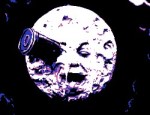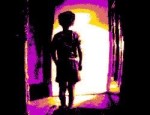Film Review
Carnage may be a variation of
Who's Afraid of Virginia Woolf for
the 21st century. The meeting of two New York middle class couples in
the apartment of one of them, to discuss a violent quarrel between
their children, becomes a tragicomic confrontation of the couples with
themselves, and of each one with the other. The politically correct,
the good manners, the restraint, and the obliged courtesy are soon
exploited by the guests, and the four characters begin to behave like
savages in the jungle.
A tragicomic air envelops their actions and makes evident the spiritual
emptiness of them all, who try to calm their fury or increase it with
whisky, cigars and cakes. They all are prisoners of the
objects. The first accident is produced by a stick, the following
ones are settled using a bucket, a hairdryer, coca-cola, perfume. The
lawyer, for instance, is largely dependent of his mobile phone, his
life is in it. The livingroom becomes a battlefield, where there
are continually repeated verbal attacks and truces. The camera
leaps roughly from one character to the other or halts, framing the
human quartet in desperate postures: males caring always for their
image, women losing it involuntarily.
As in Bunuel's
El Angel exterminador (1962),
the visitors can't leave the place. They need to
return to the apartment, because they are compelled to renew the fight,
over and over again. One of their disputes goes round the
uncivilized treatment that the house's owner gave to the hamster they
had taken care of and which has been finally released into the street.
We will see at the end of the picture, the animal happily eating in the
park, near the two reconciled children. This film is a minor piece
among Polanski's; it is based on a play by Yasmina Reza, and
does not dissimulate its theatrical characteristics.
© Adam Gai (Israel) 2011
The above content is owned by frenchfilms.org and must not be copied.
Next Roman Polanski film:
La Vénus à la fourrure (2013)
Film Synopsis
In a public park, two eleven-year-old boys get into a fight in which
they both get badly injured. Naturally, the parents of each child
consider that their little treasure is the victim of a malicious
assault. When the parents confront one another, what begins as a
mild dispute rapidly escalates into something far more serious.
Who knows where the ensuring carnage will end...
© James Travers
The above content is owned by frenchfilms.org and must not be copied.



